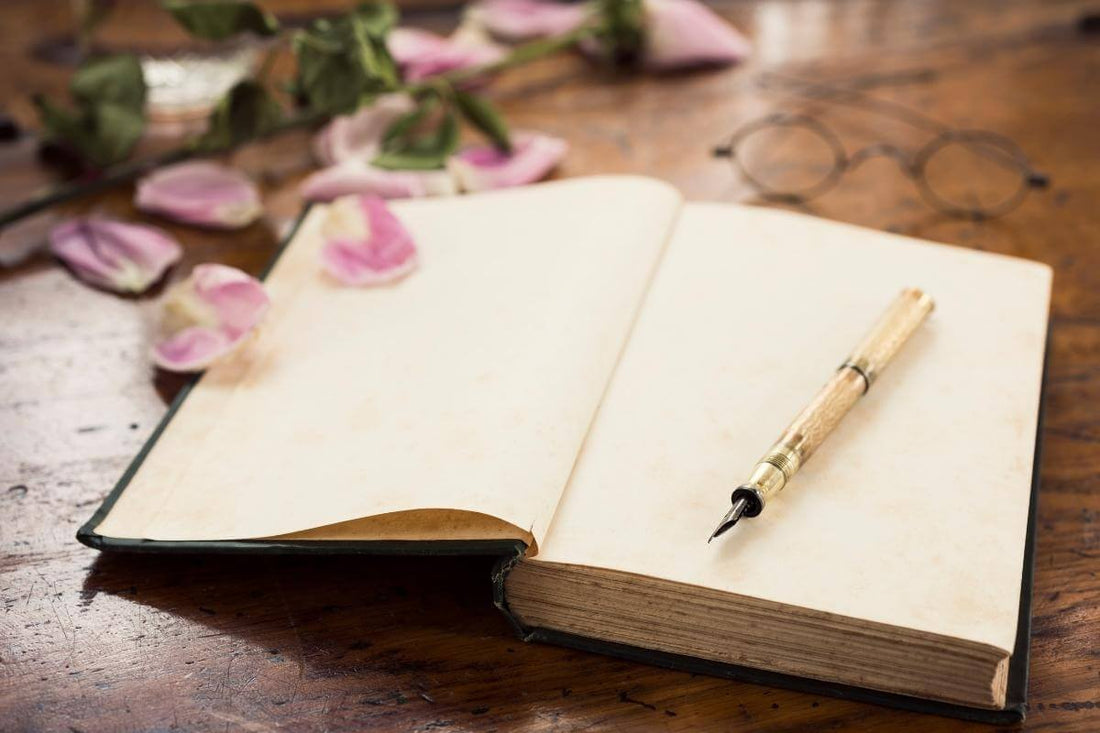Discover Our Simple Tips to Help You Start Journalling With Ease

If you are new to journalling or thinking about giving it a go, it can feel overwhelming and a bit intimidating. What to write or how much, and where to start? How do you know if you are 'doing it right'? How can you avoid overwhelm and self judgement?
The good news is that there is no right or wrong, and there are some great ways to start. And once you start, you will soon learn what works best for you. So here are some simple tips to help you get started and find out just how beneficial it can be for your life and wellbeing.

Find the way that suits you best
Journalling is pretty flexible and there are no formal rules. And as everyone is different, it can be really helpful to find an approach that works for you. You don't have to opt for a traditional notebook, but if putting pen to paper feels good then that's great.
However, you can also try other methods, for example you could make voice notes on your phone, type into a blank document on your laptop, make a video journal, whatever makes you comfortable and works for you!
Try using prompts
When you are not sure what to journal about, feeling stuck, or perhaps don't know where to start, prompts can really help. They can also be a great way to get to understand yourself and your feelings better.
Here are just a few ideas that you can try:
- Write down 3 things are you grateful for in the moment - anything from a cup of tea or warm shower, to your home or job, people you love or that the sun is shining, or a gift someone gave you.
- Think about something you love doing, and then describe it and why you love it so much.
- Think about something you fear doing, and then describe it and why you fear it so much.
- Simply write down where you are, who you are with, what you are doing with your time.
- Think about if you were to wake up tomorrow having everything you want, what would this look like?
- Go outside or into nature, describe your experience and what you felt.
If you want something more tangible to help you with this, then take a peek at our Mindfulness Collection from LSW London - Mind Cards give you daily prompts and mindfulness ideas, and the different types of journals (undated and with prompts included) mean there is an option for everyone.

Don't worry about time!
Whether it's 2 minutes or 2 hours, any time you spend turning journalling into a daily habit will help. And it's not a case of the longer the better, it's whatever works best for you! There really is no right or wrong.
To create a lasting journaling habit, you could start with just a few minutes each day, and you could add more time (only if you need to and it helps) as you get more whenever it's your preference and as you get more experienced in what works for you.
Give free writing a go
Freewriting is a technique where the writer lets their thoughts flow out onto a page (or records them), continuously and quickly without worrying about style, form or grammar.
You can start by taking several deep breaths, noticing your immediate surroundings, and writing whatever comes to mind. If you draw a blank you describe the experience of drawing a blank until something else comes forward in your mind.

Let it all flow out
Write down whatever thoughts and feelings arise, without censoring yourself. It's your journal so you can be a blunt, descriptive, honest as your like. Just try to resist editing as you go, just write as fast as you can and let it flow.
Make journalling part of your daily structure
If you are someone who likes structure, then try journalling at the same time each day and making it part of your daily routine. That might be journalling with your morning cuppa, or as you wind down for bed, or perhaps during a commute or lunch break. If you can make it a daily 'habit' that forms part of your normal routine, it will be much easier to stick to it.

Connect with your feelings
It can be difficult to start writing about your emotions and feelings, especially if it's something you're new to. You can start getting used to it by jotting your feelings about a given situation. And don't worry about being rationale! To get started you could use the following journalling prompts:
- I’m thinking these thoughts right now...
- This is what happened today...
- I’m experiencing these feelings about this situation...
Journal about difficult situations as well as happy ones
While it can be tough to revisit difficult or painful situations, journalling can sometimes help process emotions around it, and perhaps re-focus. You can try to re-frame the raw feelings a bit by asking or answering these questions:
- What you’re grateful for in the situation
- How you’ll apply what you’ve learned from it
The bottom line is that just writing a few minutes a day may help you with a range of benefits - anything from reducing stress, boosting your well-being, and better understanding your own needs. Discover more about the amazing benefits journalling can bring into your life here. It can bring into your life a concrete way to learn more about yourself and understand who you are.
Take a look at our Mindfulness Collection, which includes beautiful journals with prompts, Mind Cards that help to find good focus points, and lovely pens you can have specially for journalling.
















